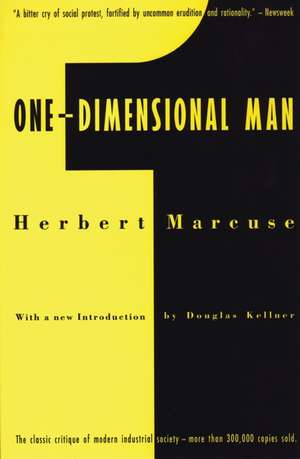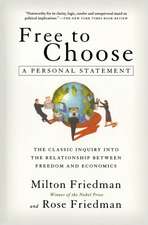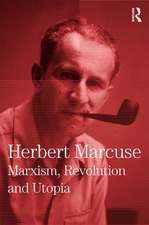One-Dimensional Man: Studies in the Ideology of Advanced Industrial Society
Autor Herbert Marcuse Editat de Douglas Kellneren Limba Engleză Paperback – 30 sep 1991
| Toate formatele și edițiile | Preț | Express |
|---|---|---|
| Paperback (2) | 124.13 lei 3-5 săpt. | +14.87 lei 4-10 zile |
| Taylor & Francis – 11 iul 2002 | 124.13 lei 3-5 săpt. | +14.87 lei 4-10 zile |
| Beacon Press – 30 sep 1991 | 134.04 lei 3-5 săpt. | +33.03 lei 4-10 zile |
Preț: 134.04 lei
Nou
25.65€ • 26.68$ • 21.18£
Carte disponibilă
Livrare economică 25 martie-08 aprilie
Livrare express 08-14 martie pentru 43.02 lei
Specificații
ISBN-10: 0807014176
Pagini: 320
Dimensiuni: 137 x 207 x 17 mm
Greutate: 0.34 kg
Ediția:None.
Editura: Beacon Press
Notă biografică
Recenzii
Cuprins
Introduction to the Second Edition Introduction to the First Edition The Paralysis of Criticism: Society Without Opposition ONE DIMEMSIONAL SOCIETY 1. The New forms of Control 2. The Closing of the Political Universe 3 The Conquest of the Unhappy Consciousness: Repressive Desublimation 4. The Closing of the Universe of Discourse ONE DIMENSIONAL THOUGHT 5. Negative thinking: The Defeated Logic of Protest 6. From Negative to Positive Thinking: Technological Rationality and the Logic of Domination 7. The Triumph of Positive Thinking: One-Dimensional Philosophy THE CHANCE OF THE ALTERNATIVE 8. The Historical Commitment of Philosophy 9.The Catastrophe of Liberation 10. Conclusion Index _ _
Descriere
One of the most important texts of modern times, Herbert Marcuse's analysis and image of a one-dimensional man in a one-dimensional society has shaped many young radicals' way of seeing and experiencing life. Published in 1964, it fast became an ideological bible for the emergent New Left. As Douglas Kellner notes in his introduction, Marcuse's greatest work was a 'damning indictment of contemporary Western societies, capitalist and communist.' Yet it also expressed the hopes of a radical philosopher that human freedom and happiness could be greatly expanded beyond the regimented thought and behaviour prevalent in established society. For those who held the reigns of power Marcuse's call to arms threatened civilization to its very core. For many others however, it represented a freedom hitherto unimaginable.

























